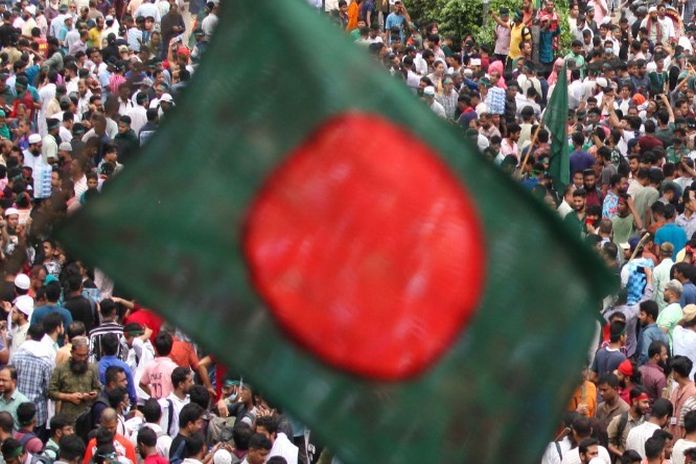GENEVA, Switzerland – UN Human Rights chief Volker Türk on Friday said the transition in Bangladesh was an historic opportunity to ensure governance is anchored in human rights, inclusivity and rule of law, stressing the need for accountability for all those responsible for human rights violations and violence.
“The transition ahead presents an historic opportunity to reform and revitalize the country’s institutions, to restore fundamental freedoms and civic space, and to give all in Bangladesh a part in building the future,” the High Commissioner said, as the UN Human Rights Office issued a preliminary report on the protests and unrest in the country in recent weeks.
“Accountability for violations and justice for the victims are key for the way forward, and will need to be accompanied by a national healing process,” Türk said. “A comprehensive, impartial and transparent investigation into all human rights violations and abuses that have occurred will be a critical first step.”
Triggered by the reinstatement of a quota system for allocation of civil service positions, initially peaceful student protests in Bangladesh in mid-June were followed by violence and serious human rights violations committed by security forces, with hundreds of people believed to have been killed – including at least 32 children – and thousands injured.
“There are strong indications, warranting further independent investigation, that the security forces used unnecessary and disproportionate force in their response to the situation. Additional, alleged violations, that also warrant thorough, impartial and transparent investigations, included extrajudicial killings, arbitrary arrests and detention, enforced disappearances, torture and ill-treatment, and severe restrictions on exercise of freedoms of expression and peaceful assembly,” the report states.
Following the resignation of the government on 5 August 2024, there were also reports of looting, arson and attacks on members of religious minorities, as well as reprisals against and revenge killings of members of the former ruling party and police. On 15 August, mobs armed with bamboo sticks, iron rods and pipes reportedly assaulted supporters of the former prime minister. Journalists were also reportedly attacked and threatened preventing them from filming at the scenes.

The report emphasises the importance of rapidly restoring law and order, and the need for effective measures to prevent further loss of life, violence and acts of reprisals.
“Law enforcement agencies need to receive clear instructions and training on the use of force, in line with international human rights standards. They must protect populations at risk against any retaliatory or revenge violence, including minority communities.”
The High Commissioner welcomed the initiative by various student organisations, faith leaders and other people forming groups to protect minorities and religious sites belonging to minority communities. The Interim Government has also strongly condemned these acts.
All those responsible for human rights violations, including those who used or ordered the unnecessary and disproportionate use of force, must be held to account and victims provided reparations and effective remedies, he added.
Türk welcomed the release of thousands of detainees and longer-term political prisoners – including some victims of enforced disappearance – and urged the release of all those arbitrarily detained.
The report also called for a systematic approach to vetting for any appointments and dismissals to the judiciary, security sector and other institutions.
The High Commissioner also announced that a team would visit Dhaka next week to explore areas in which the UN Human Rights Office can support the transition. The team will also discuss the modalities for an investigation into human rights violations in the context of the recent violence and unrest.
“As I assured the chief adviser to the interim government, Professor Muhammad Yunus in our phone call this week, we stand in solidary with the people of Bangladesh at this time and are committed to supporting the Interim Government for a successful transition that is inclusive and advances the rights of all the people in Bangladesh,” said Türk.
Read the full report here.





